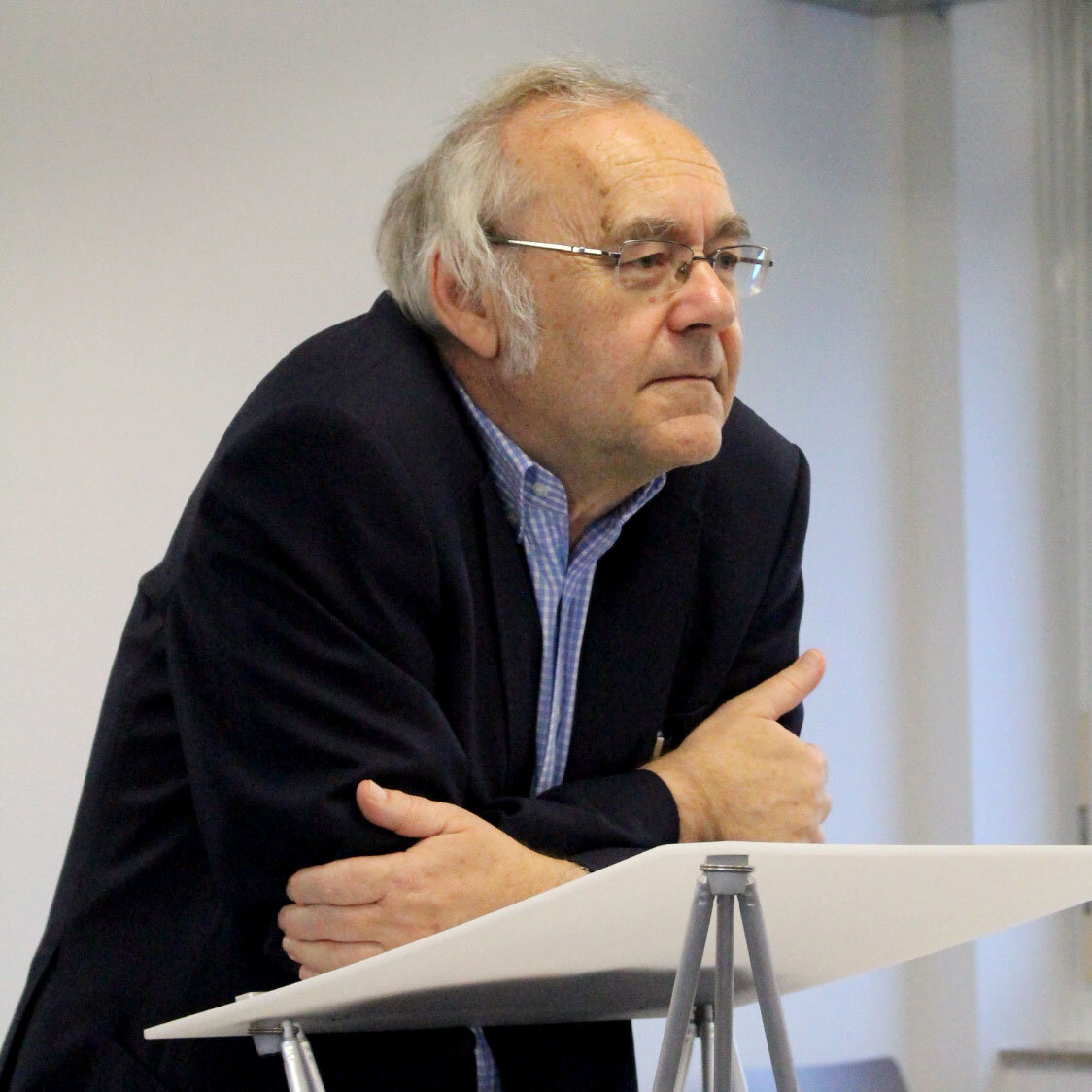The Flight From Consistency 12


145. If all participants of a discourse master and apply the dualist argumentation technique, this leads to a stalemate between the contrary views. However, the truth-oriented thinker must not be satisfied with such a stalemate-situation: By presupposing his own beyond of discourse to all participants, the dualist thereby also demands that these truth-claims are honoured/redeemed by them. A central purpose in a dualist truth-orientated discourse is the reduction of conflicting opinions towards the one and true opinion, and hence to reach a special kind of consensus, namely a true consensus.
This would be unproblematic as long as a discourse runs dominance-free. In a dominance-free discourse no consensus would be reached. But in many of our discourses authority, power and dominance are unequally distributed. And then the discourse participants are virtually obliged, if they want to satisfy the exclusivity claim (and the high ethical demand) of truth, to attempt to enforce their truth-claims – legitimized by the beyond of discourse – on their opponents in the discourse as well.
146. Fortunately, in philosophy (and also in other sciences) there is only rarely the danger of trying to resolve these stalemate-situations by force: most discourses in philosophy take place in absence of the discourse-partner or ‘opponent’: Accusations of error are mostly made in texts against other texts whose authors are often no longer alive; and only rarely disputes between philosophers are acted out face to face.
That is why most views and theories are refuted from views and theories which the refuted theorists often don’t (can’t) get to know, and when they get to see or hear them, they write refutation of the refutation if they want to.
147. Is the failure of theories as frequent as it is claimed? If all theories whose failure was stated by a critic had failed, the world of theories would be quite empty....
Hilary Putnam writes in his book Renewing Philosophy : “My purpose here is not to polemize against materialism and relativism, but to see what we can learn from the failure of these large points of view.” Who among relativists and materialists cares that another philosopher declares them to have failed? On what else have these “large points of view” failed than against/on Hilary Putnam’s philosophy, which he has presupposed as a reference view to the (therefore) failed views. Is the failure of theories connected with their disappearance from the literature? They can come back... Little more than a hundred years ago the majority of philosophers were idealists. Today in the “leading” departments of philosophy, realists (still) predominantly occupy the chairs. And their realist convictions are very deep-seated: “Realism is the natural epistemological attitude”, “Being a realist is a natural attitude, that ultimately one cannot avoid taking.”, “The difficulty of an attempt to justify ontological realism lies in slipping into ridicule in the face of the overwhelming evidence.” etc.
148. The direction of dualist thinking is toward the object.Dualist thinking is referential, is directed backward: to the object that precedes the description. The object-directedness of descriptions only makes sense, if the object is already in advance of the descriptions (statements, sentences, theories and other lingual efforts) so, as it is described in the best case, in the case of truth.
In order for the object to be in advance of the descriptions, as it is then described, the description of the object, the how-determination of the object must be apriorized. This apriorization is only possible after the description: through presenting/denoting the object with the help of one’s own opinion. The contingent how-determination of the object has to be transformed into a not (anymore) contingent that-presupposition.
149. The distinction between holding to be true and being true, between truth and error, between appearance and being, can only be introduced for the counter-opinions: through denoting/specifying the object with the help of one’s own opinion.
The dualist argumentation-technique cannot protect or withdraw one’s own opinion from arbitrariness. In one’s own opinion holding to be true and being true coincide: In the dualist truth-discourse we have no choice but to hold our own opinion to be the more likely true one: that is to determine it as being in unison, in accordance with the object. Truth as a discourse regulative regulates the discourse in the direction of one’s own respective opinion. Only the counter- opinion can be withdrawn from arbitrariness, but this withdrawal is again arbitrary: because it is carried out through arbitrary self-held opinions, anchored by compliant instances in the beyond of discourse.
150. Does everything now become arbitrary? Can we assert any nonsense with equal right that comes to our mind? Nothing gets more arbitrary than it already is. The strangest things were and are still asserted and yet each theoretical proposal was rejected by another as error, if not as nonsense.
Already now contradictions are tolerated as long as we do not contradict ourselves just at the very same time (and how should this be possible.) If we change our opinions in larger temporal intervals, this may well be interpreted as a sign of creativity. Important is only that contradictory standpoints are not held in the same article, in the same book. (The reader should imagine Hilary Putnam’s or Ludwig Wittgenstein’s writing as one book...)
151. Now what should a rational discourse look like, if we no longer decide about truth and falsehood from a beyond of discourse, into which we have placed ourselves by means of depersonalization and dualization strategies? How shall a rational discourse run, if we use expressions like “true” or “false” merely to indicate agreement or disagreement with other opinions, without being able to legitimize this agreement or disagreement through an appeal to a beyond?
If we renounce using the argumentation-technique developed by dualism, this does not at all have the consequence that we also give up justifying our views, testing our theses or trying to challenge them through new theses. And certainly we need not refrain from striving for clarity, simplicity, and precision, whatever this may mean.
152. In a nondualist philosophy of change views are not held, because they are true. Truth is modest and undemanding. Opinions are true, because and as long as we hold them, and they are false, because and as long as we do not hold them.
The function of concepts like truth and falsehood is limited to the demarcation between opinions we hold and opinions we do not hold.
The border between truth and falsehood runs along the border between our own opinions and the counter-opinions. And the nondualist wants to resist the temptation to deepen this border into a moat, reaching unto the beyond of discourse.
153. An opinion is wrong or erroneous, insofar it deviates from the opinion from which the accusation of error is made. We may well commit errors, but the possibility of error is the chance to give up present opinions in favour of new ones.
Like in dualism we cannot err in what we are erring about, - but deprived of error is here not a ‘language-transcendent’ object towards which our discourses are directed.
Deprived of error (dem Irrtum entzogen) is merely the basic consensus from which we develop our opinions. We share many of these basic consensuses with many discourse-participants, but this only means that many of our opinions are non-controversial and function as they do, thus enabling coexistence and cooperation in our society. These basic consensuses can be questioned at any time: Reality is nothing but the “present state of things”, nothing but the opinions held here and now.
154. Of course reality includes also views that we have to hold in order to survive in our society. But then we should not speak here of an agreement/correspondence of our opinions with an “independent” reality but rather of a consensus between the participants of a conversation that can only run as long as the basic consensus from which it is conducted, does not break. Often a consensus may be preferable. But when we aim at changing the status quo, dissent might be preferred. Reality is not a static construct in a beyond with a judging function, it is constantly being redefined in the course of our discourses.
155. Decisions for or against opinions are often made for practical considerations, for fear of punishment or hope of reward, for conformist or nonconformist reasons or simply because we tend to give preference to opinions that are consistent or at least compatible with those which we already have; on the other hand we will occasionally give preference to opinions whose adoption involves abandonment not of cherished opinions, but rather from those, whose love has been lost.
156. Conflicts are not decided through universalizing one’s own truth claims and putting/positioning them ahead of all other opinions – this procedure can be applied by all dualistically trained discourse-participants and therefore leads into stalemates.
Conflicts can be avoided or defused, if there is an interest in it, by withdrawing the descriptions from now on, which have caused the conflict, and by trying a new beginning from the basic consensus, that is by trying to expand the basic consensus consensually. Alternatively we can question descriptions so far again and thus change the discourse.
157. Non-dualizing “talking about” is no longer directed towards the object of the talk, directed to what we talk about --- but starts from the object of the talk. To talk about an object is to continue the talk <em>so far</em>in a talk <em>from now on</em>.To describe an object is to continue the description so far/an object/ and thus to change the object into a new object of further descriptions. The object of the description relates to the description of the object like a description so farto a description from now on.
158. In a non-dualizing mode of thought the attempt to distinguish the table from the description of the table is the attempt to distinguish the description so far/the table/ from the description from now on “The table is made of wood.”. The attempt to distinguish the table from the description of the table is the attempt to distinguish the table from it being made of wood.
159. Dualist philosophy directs its thinking efforts to a goal that is removed from the contingencies of this very thinking.
This goal lies in a beyond of discourse, that is reached within the discourse: by attempting to perpetuate the status quo, to transfer the “here and now” into an “always and everywhere” and to expand the presence into the past and into the future.
160. The flight from contingency ends where it begins.
Next: Appendix I: Talking About. A short manual for dualist argumentation.

Josef Mitterer is an Austrian philosopher.
The Flight From Contingency 1 here
The Flight From Contingency 2 here
The Flight From Contingency 3 here
The Flight From Contingency 4 here